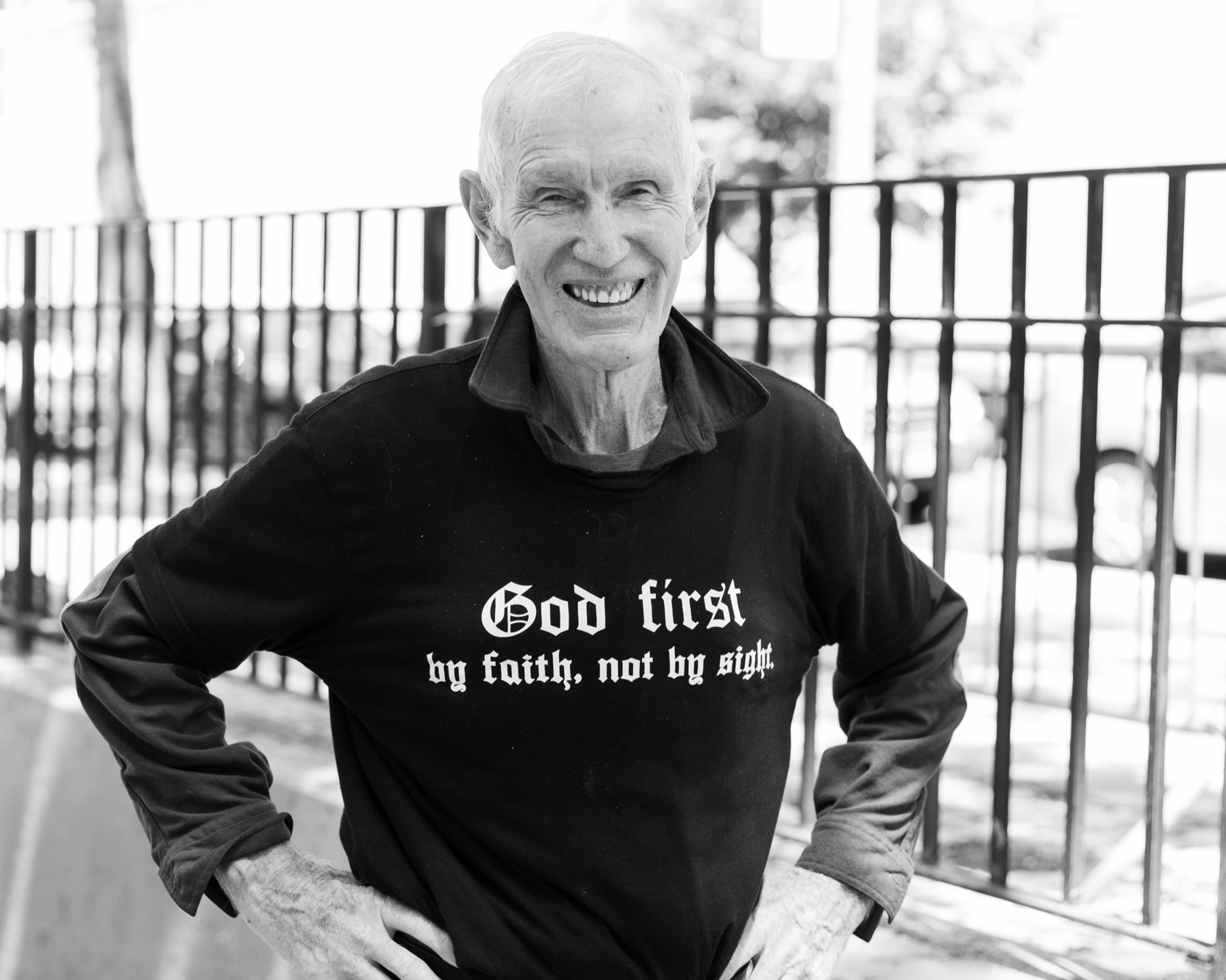"Jesus Feeds the
Five Thousand"
John 6:1-15: Bible Study with Commentary
"Jesus feeds the five thousand" is the only miracle by Jesus that is recorded in all four Gospels, and they all vary somewhat in their accounts.
Although the people accept Jesus as a prophet, they associate His miracle of feeding the 5000 with the miracles of Moses, (when the Children of Israel received "manna" on a daily basis). (Deut 18)
"Jesus Feeds the Five Thousand, John 6:1-15"
Verse 1: "After this Jesus went away to the other side of the Sea of Galilee, which is the Sea of Tiberias."
The Sea of Galilee has had different names over the centuries, but most seem to think it was called the Sea of Galilee during Jesus time. The city of Tiberias is believed to have been established around 20AD.
Verse 2: "And a large crowd was following him, because they saw the signs that he was doing on the sick."
John explicitly tells us that Jesus healing of the sick was a miracle and a sign. These miracles, or signs, are what led these people to follow Jesus.
Verse 3: "Jesus went up on the mountain, and there he sat down with his disciples."
Jesus would have been traveling eastward, so the mountain mentioned would be in the general area of what is now the Golan Heights, bordering Syria.
And there He sat with His disciples.
Verse 4: "Now the Passover, the feast of the Jews, was at hand."
This Passover is thought to be one year later than the one we studied in John 2:13, (where Jesus cleansed the temple).
This miracle, where Jesus feeds the five thousand, occurred approximately six months after our last study, where Jesus healed the cripple by the Pool of Bethesda.
So again, here He was, sitting with His disciples on this mountain,
Verses 5-6: "Lifting up his eyes, then, and seeing that a large crowd was coming toward him, Jesus said to Philip, "Where are we to buy bread, so that these people may eat? He said this to test him, for he himself knew what he would do."
So why would He ask Philip this question? (can't you just see Jesus setting this up?)
He certainly knew, that in the practical sense, there was no rational way to feed this many people in this remote area.
Perhaps it was because Philip lived nearby, (in Bethsaida) that He chose to ask him the question.
For most of His three and a half years of teaching, Jesus was delivering an accelerated course to His disciples, for their future ministry in the New Testament doctrine.
Philip and the other disciples were about to receive a new lesson.
Verse 7: "Philip answered him, "Two hundred denarii would not buy enough bread for each of them to get a little." (dih-NEHR-ih-igh)
Philip gave a practical 'common sense' answer, didn't he? "Two hundred denarii" was what some have figured out to be the equivalent of 200 days meager earnings in his time. (maybe equal to our minimum wage nowadays?)
Then Andrew spoke:
Verse 8-9: "One of his disciples, Andrew, Simon Peter’s brother, said to him, "There is a boy here who has five barley loaves and two fish, but what are they for so many?"
(Fish and bread were staples, few people could afford meat).
Andrew took the same view as Philip, the only difference being that he knew of someone who had a little food.
The only response from Jesus was:
Verse 10: "Jesus said, "Have the people sit down." Now there was much grass in the place. So the men sat down, about five thousand in number."
So this mountain had grass, which had to make a better seat than the rocks that are typical for that area.
John says there were about five thousand men, but the Greek term used here is gender specific, meaning that only the men were usually numbered. The whole crowd, including men, women, and children, could have been four times that number.
To put this in context: This crowd was nearly as large as was the capacity of the largest theaters in the major cities of that time, (such as Ephesus). The seating capacity of the Roman Coliseum was between 50,000-70,000, probably the largest in the world.
So, that's a lot of hungry people, isn't it?
But, in verse 11:
Verse 11: "Jesus then took the loaves, and when he had given thanks he distributed them to those who were seated; also the fish, and as much as they wanted."
Jesus accepted these loaves from the boy and gave thanks for them. It was customary among the Jew to give thanks before and after the meal.
Verse 12: "And when they had eaten their fill, he told his disciples, "Gather up the leftover fragments, that nothing may be lost."
So this wasn't a symbolic meal or a snack, it was a full meal, and they collected the leftovers. Even though Jesus could miraculously reproduce this food, He gathered it up, so that none would be wasted.
Verse 13: "So they gathered them up and filled twelve baskets with fragments from the five barley loaves left by those who had eaten."
Twelves baskets full is more than they had to start.
And there were 12 baskets of fragments left-over. Again, others who have studied the references see the number of baskets, "12" as being significant, or relative to the 12 tribes of Israel in the desert.
Maybe it is, what do you think? Twelve baskets - Twelve tribes, Moses feeding people - Jesus feeding people. Bible Scripture is intensely connected
It's unimaginable how the Scriptures tie events together that are often hundreds of years apart. In this case, it would have been over 1400 years. Between 1440 to 1400BC, were the years of the exodus and wandering in the desert.
That's so interesting, isn't it!
So, in verse 14:
Verse 14: "When the people saw the sign that he had done, they said, "This is indeed the Prophet who is to come into the world!"
They said, "This is indeed the Prophet who is to come into the world!" and they were right.
What they were referring to was the Scripture in Deut. 18:15 where Moses was prophesying to the people:
"The LORD your God will raise up for you a prophet like me from among you, from your brothers—it is to him you shall listen..."
(Moses had told them there would be a prophet like himself)
Then they began to follow Jesus; many merely hoping for more free food.
But, wouldn't that be a natural thing to do? After all, the miracle where Jesus feeds the five thousand was the same thing Moses had done.
These people had recognized Jesus as being the one in Moses' prophesy, and were hoping to secure a constant supply of food through Him as their forefathers had through Moses.
OUR LAST VERSE IN THIS PART: (but this story continues in our next study)
Verse 15: "Perceiving then that they were about to come and take him by force to make him king, Jesus withdrew again to the mountain by himself."
Doesn't it cause you to wonder how they could force Him to be king?
Perhaps an understanding of how the Jewish people felt, and the hopes they had will help us to better identify with their actions.
During Passover, their hopes of deliverance ran very high. They would rehearse how that God had delivered their nation from their oppressors, by the hand of Moses.
The Jews still considered this to be their country, the "Promised Land of Milk and Honey" that their forefathers had delayed due to their being a "stiffnecked people," (Exodus 33:3)"
At the time of Jesus, they were living under control, and domination of the Roman Empire, just one step above slavery, but were expecting another leader like Moses.
They wanted to see great miracles; to have a king who could free them from their enemies and restore their country. Perhaps then, they could live in the peace and abundance they considered to be their heritage under the Old Covenant.
They had seen Jesus Feed the Five Thousand and had correctly identified him as the One in Moses' prophesy; however, as we will see in the following study, they like their forefathers, are a "Stiffnecked People."
Although many of them missed Jesus as the "Messiah," others had correctly identified Him and became Followers after His death and resurrection.
Feeding the five thousand was another demonstration of God's, love, power, compassion, and provision. He more than met the needs of these people, while offering them still another sign that He was the Messiah, the Son of God.
Jesus didn't need these few fish and bread to feed the people. He could have just spoken this food into existence. Instead, He accepted this gift from the boy and multiplied it until it fed thousands of people, and there were 12 baskets full left over.
Isn't that a great lesson for us! I wonder how much food the boy took back with him, don't you suppose it was more than he brought?
This story of Jesus feeds the five thousand does not end here but continues next week with Jesus attempting to help them understand His true mission.
Since most translators believe the account of Jesus walking on water was also a part of this occasion; our next study will be the conclusion of, "Jesus Feeds the Five Thousand," and the account of, "Jesus Walks on Water."
OUR NEXT STUDY:
Back To Gospel of John Bible Study
"Lets Teach Our Children to Love"
Why is it so difficult for our educators and society, in general, to understand that love and respect for one another taught from a young age can solve much of the world's hostility and social problems!
"Train up a child in the way he should go, And when he is old he will not depart from it" (Prov 22:6).
Love is the answer!
Loyalty and Faithfulness
True loyalty springs from the heart and is wrapped in love. It is often in our most private moments that true loyalty, or the lack of it, is made known.
Sharing the
Message Of Jesus

Recent Articles
-
Prayer Requests
Mar 23, 25 02:48 PM
God answers prayer. Submit your prayer requests and have other Spirit Filled Christians pray for you -
Dreams From Heaven Supernatural and Glorious
Mar 17, 25 10:27 AM
Large collection of mysterious, fascinating Christian visions and dreams. Please Submit your dream. -
Daniel Cahill
Mar 13, 25 04:14 PM
Daniel Cahill is a devoted Christian who shares his Christian insight and love with those who live on the streets of New York City, Miami, and the world. -
Visitor Articles at Trusting in Jesus Ministry
Mar 06, 25 03:52 PM
Visitor articles: These Christian articles were written by visitors to the Trusting in Jesus website -
Most Recent Articles from the Trusting in Jesus Website
Mar 06, 25 03:46 PM
These are some of the most recent articles from the Trusting in Jesus website; hope and encouragement for every aspect of life.
Beatrice: Kenya
Thank you for the wonderful and easy to understand commentary on John 6. I have learned a great deal through the revelation of the Spirit of God. I hope to continue studying with you.
God bless you
Mark: United States
Hi Sam,
I'm glad to find somebody who is familiar with Deuteronomy chapter 18 verse 15.
You did a great with your message on Jesus feeds the 5000.
I thought I would bring something to your attention in verse 11 that you did not mention.
Notice it says he distributed to them who were SEATED . Think about it.
Mark

Samuel L Mills
PO Box 4456
Maryville, TN 37802

